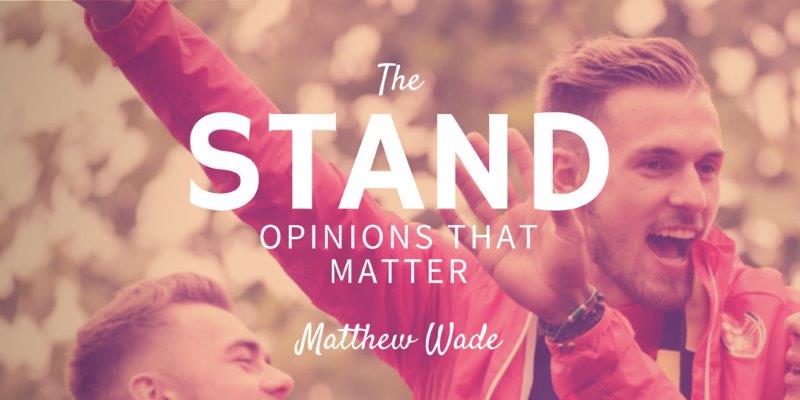So the Managerial merry-go-round continues to spin, hurling esteemed (and not esteemed) men off in all directions, and with plenty of others waiting in fear of trigger happy boardrooms, stalking horses, and the summer availability of some big hitters.
With the oh-so-amusing demise of the self-obsessed one, complete with Eden Hazard as Brutus to Mourinho’s Caesar, not to mention the Glazer’s attempts at replacing Ferguson akin to the Star Wars franchise’s inability to replace Darth Vader, there has been quite a lot of t’internet reflection this week on the longevity and stability of the Wenger years.
And ultimately comparison is inevitable.
While half of Mourinho’s ex-players (including our resident genius) have been lining up to praise him, others who enjoyed his company rather less have been putting the boot in. Certainly, it’s hard to ignore the Portuguese narcissist’s immediate impact at any club he manages (even if he always spends a fortune), but it’s equally hard to ignore his lack of longevity and the acrimony he can leave in his wake.
Despite the desire to do so, it’s not entirely fair to single Mourinho out in the short-lived stakes. Guardiola, Ancelotti and many other of the world’s top coaches seem unable to sustain the dynastic approach that has traditionally worked in England. Perhaps the intensity at which they work in order to achieve what they do is impossible to sustain?
Of course the polar opposite to Mourinho has always been our man with the magic hat (apologies to George Graham). Where the ex-Chelsea man thrives on driving people to the limits of their capacity in terms of energy, concentration and tolerance, actively embracing confrontation, Wenger is famously concerned with creating harmony and an environment that fosters creativity and inspiration.
The former approach can be very effective at first, but is more likely to result in feast or famine, and is accentuated by Mourinho’s Bush-like ‘with me or against me’ paranoia fuelled inflation of his favourites at the expense of others. It’s hard to imagine that anyone who has played for Wenger would come out with “…I’d rather lose than win for him“. And naturally such incredibly demanding short-termism makes it almost impossible for younger players to get a look in within the first team.

However, while it would be all too easy as an Arsenal blogger to turn this into a ‘let’s laugh at Jose’ column, there are undoubtedly question marks as to the best methodology for the club going forward whenever Le Boss decides to stroll off into the sunset.
Will it be possible in the context of the modern game to attempt another dynastic appointment, particularly with the difficulty of replacing a man who will have been incumbent for at least two decades, with fingerprints all over the club? And is that even the most desirable approach?
In the build up to this week’s clash of the titans, the invariably respectful Manuel Pellegrini commented on the time our man has had in charge, suggesting that it is entirely appropriate for each club to have its own modus operandi.
Accordingly Arsenal have always attempted to operate with a touch of class, and a lot of patience, with only 13 men at the helm in the last 100 years. That’s two less than Chelsea have had since Wenger arrived at the club, and six less than Manchester United, despite the extraordinary longevity of Matt Busby and Alex Ferguson. Real Madrid have had a whopping 57 in the last century, and Barcelona 62 (including my mate’s Grandad, the extraordinary Vic Buckingham) and it hasn’t destroyed them. Ultimately some teams chop and change to the degree that the manager is barely even a head coach, with the club’s success defined primarily by the calibre of the playing staff. Other’s with less resources but a similarly scattergun approach merely bounce from one mediocrity to another.
Perhaps AAA (Arsenal After Arsene) would benefit from a deliberately short to medium term appointment – a high profile rent-a-coach shock to the system, and a break before the next long-term candidate, perhaps breaking our European Cup duck in the process?
What is clear is that for a real long-term approach to flourish, you have to have a dog capable of learning new tricks as it gets old. After the best part of a decade of being accused of stubbornness and a refusal to compromise his approach, the last 12 months has shown our man in the marble halls to be a rather more flexible manager than was initially thought, including the embracing of modern technology and monitoring techniques. This week he talked about the importance of recognising his mistakes, and there is no doubt that doing so in recent times has yielded results.
So far this calendar year, Arsenal have a win ratio of 67.3%, which is the best of any January-December in the club’s history. To be achieving such results after so long in charge without the domestic financial dominance of Real, Barca, Bayern, PSG, Juve (or even Man City, Man Utd or Chelsea) is genuinely extraordinary, particularly in what is undeniably the most competitive league in the world. Eddie Howe is the only other manager in the top flight to be in the job with his club for more than three years, with Arsene in the hotseat in North London for 19 years and counting.
So while the way forward when the time comes remains a point of contention, our current main man is, perhaps surprisingly, making a very good case for that time to be some way off yet.

